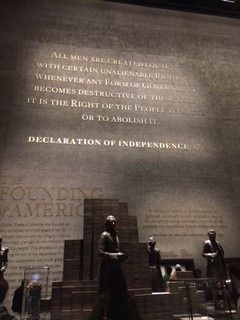Loving Limits Is Constitutional

It’s always refreshing to run across an essay by an academic historian who actually has something to say. It’s also exceedingly rare. “More than 240 years removed from the Declaration of Independence, many Americans on this day of remembrance and commemoration will entertain fantasies of returning to a more uncomplicated and auspicious past that never existed,” Mark Malvasi, an historian at Randolph-Macon College wrote in an essay which appeared on The Imaginative Conservative blog. “Although understandable, especially among men and women who have long felt themselves left out and left behind, who justifiably see themselves more often as the victims than the beneficiaries of progress, this sentimental reverie forecloses any hope of undertaking a measured and realistic evaluation of American problems and prospects.”
“As a consequence, Americans remain ensnared in a confused, tedious, and inconclusive debate about the character, meaning, and future of national life, all the while vacillating between suspicion and contempt, cynicism and sincerity, resentment and intolerance. None of these perspectives acknowledges the grateful recognition of the Founding Fathers that life is a gift from God, not an affront to human desires. Reaffirming both folk wisdom and Christian orthodoxy, a healthy respect for limits, woven into the fabric of the Republic from the beginning, offers a way to recover the political and moral realism that contemporary Americans have lost.”




